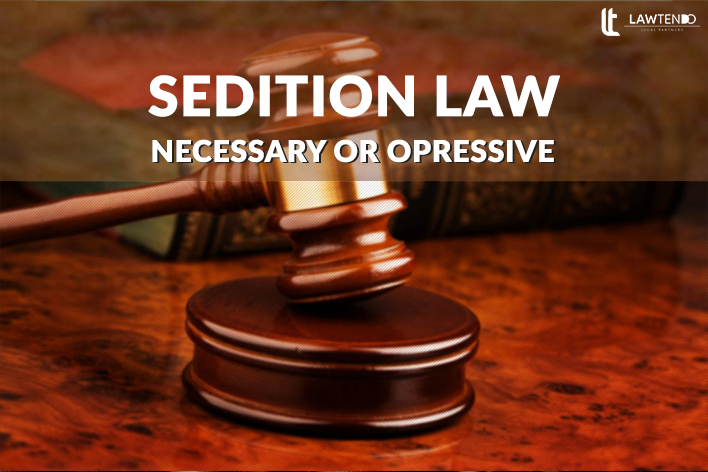What is sedition law?

Date : 30 Aug, 2019
Post By Sankul Nagpal
From Bal Gangadhar Tilak to Kanahiya Kumar, sedition controversies are the most recurring issues of modern India. With leaders being thrown up in jails to freedom of speech being infringed, sedition has changed the way our democracy functions. What is sedition? ‘Sedition’ in its narrower meaning refers to any act or speech that leads to a rebellion against the State. According to Section 124A of the Indian Penal Code, 1860, sedition is a cognizable offence against the state by an individual who by words, either spoken or written, or by signs, or by visible representation, or otherwise, brings or attempts to bring into hatred or contempt, or excites or attempts to excite disaffection towards the Government established by law in India' and is punished with life imprisonment. What is “disaffection” according to Section 124A The explanation which the Indian Penal Code provides in relation to the term 'disaffection' is that it is something which includes disloyalty and feelings of hate. The Act also provides the comments that express strong disapproval of 'the measures of the Government, with a view to obtain their desired modifications by lawful means, without exciting or attempting to excite hatred, contempt or disaffection, do not constitute an offence under this Section. This means that constructive criticism of the government is excluded from the purview of the Section. The History of the Law The law on sedition was originally drafted by Thomas Macaulay. It was not a part of IPC in the 1860s and was subsequently dropped from the law for being too vague. However, in the year the 1870s it was reintroduced in the Indian Penal Code. The history of sedition and its charge by various authorities is evident throughout history. Many freedom fighters, including Mahatma Gandhi and Bal Gangadhar Tilak, were charged with sedition during the freedom struggle. Even during the constitutional amendment sessions leaders such as Jawaharlal Nehru were categorical in their belief that the offence of sedition was fundamentally unconstitutional. They believed that the sooner India got rid of the law the better it would be. The Need of Change The very purpose of the law is to create a balance between the competing interests of society. While in the pre-constitution and pre-independence era, sedition law was routinely used to curb political dissent against the British Government. After 73 years of independence, it is evident that India has gone through various reforms in almost all spheres in order to cater to the needs of the most diversified society in the world. Therefore the need of the hour is to make appropriate amendments in sedition law in order to serve the present day scenario in a better way. The need is to evolve a stricter policy to cure diseases like sedition and treason, in order to maintain the sovereignty and integrity of the Nation. For this, the education system has a major responsibility as it is the key to build up future Indians with clear thoughts and nationalist liberalism. The legislature also holds the responsibility to address issues like discrimination of caste, sex, religion or language so as to channelize grievances against the Government and to establish a proper procedure for constructive criticism. None the less, the judiciary has the highest responsibility to define and to adjudicate accurately each and every case of sedition and treason, and impart appropriate justice to the Nation and its individuals. LawTendo has around 15000+ lawyers across India in our platform. LawTendo strives to facilitate cost-efficient and quality legal service to our clients. You can contact us at +91-9671633666 or [email protected].





